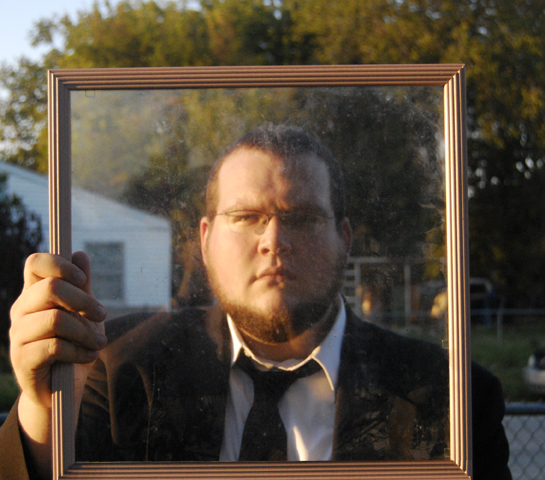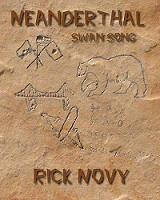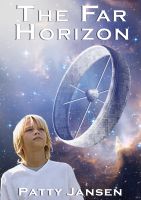Neo-pro Interview: Steve Stewart

Who are you? What’s your genre/history/etc?
Steve: I was a weird kid; the worst part was, I didn’t know I was weird. It took me a long time to realize that when a teacher holds up a picture of a one-humped camel in a kindergarten class, you’re not supposed to say “dromedary.” When the school asks students for their input designing the new playground, they want you to draw a tornado slide, tire swings, a seesaw; basically anything but an interconnected network of cloud-shaped tree houses with foam harpoon guns.
I was scared of the dark. It was like a chalkboard where I could sketch my primal fears as big as my suffocating imagination could make them. I was the kid asking for doors to be left open a crack, for closets to be checked. I was the kid running up the stairs with the basement darkness nipping at my heels, clutching the jar of canned peaches my mom had asked for to my chest. I was also the kid begging my dad to tell me just one more scary story. The more something scared me, the more I wanted to tell stories about it, draw it, dig down deep and figure it out.
Maybe I’m still doing this.
These days, I have a wife and two little girls who blow my mind every single day, and I spend five nights a week away from them chasing this writing thing. It’s a life that doesn’t make sense to a lot of people, but I’ve found incredible fulfillment in it. Searching for true things and lying about them creatively is a hell of a job. It’s the only one I want.
I write speculative fiction of all kinds, but it tends to be visual and character-driven. Love stories creep into almost everything I write, and I’m starting to wonder if I might be, at least in part, a closeted romance writer. (I never went through the I-don’t-like-girls stage.) Most of what I’ve sold has been sci-fi, but I would like to write and sell more horror. I have soft spot for mysteries as well, and I’d love to sell a novel to Hard Case Crime someday. We’ll see what happens.
What’s your Race score? (1 pt for every short story out to market, 3 points for every novel query (1 per novel only), 8 points for every full (once per novel only also) )
Steve: Shit. You’ve got me. I’m at that weird place where I’m just beginning to sell, so I have a pile of stories in my writing folder, and I would be embarrassed to attach my name to most of them. Henlein’s fifth rule—keep a story on the market until it has sold—is a tough one for me once I realize a story is not pro quality. (Heinlein can talk big, but he was already an effing genius by the time he coined these rules.) I’ve only been producing publishable work for maybe two years, and many of those stories have either sold or continue to look for homes because they’re just so damn long.
I’m proud to say, as I write this, I’m about 5k from the end of my first novel. I’m really pleased with it, and I can’t wait to dig into revisions and send it out. Writing a novel is weird, because you’re working, but you feel strangely disconnected from everything. I’m looking forward to getting back in “the mix.”
So what is my score? Excuse-free answer: A pitiful 3 or 4, but it’s been much better in the past.
When did you “get serious” about being a writer?
Steve: March 2009. I was working security at a university, and I would spend all night walking around in the dark, through the nursing department’s creepy lab full of blank-eyed dummies or down into the depths of the old mansion that served as the campus library. (The kid version of myself would have had an aneurysm.) I had lots of time to think about my life and the direction it was going. I had been writing since I was a kid, but working as a professional had always felt sort of distant and hypothetical. For the first time, it felt like something I could do, not some future me, but me.
I bought a little $300 netbook and starting writing every chance I got. Six months later, I was accepted into Uncle Orson’s Literary Boot Camp where I got to work closely with one of my heroes, Orson Scott Card. I sat across from the man at dinner. We split a pizza. It was surreal. I think it was John Brown (the author and Codexian) who said that Boot Camp was “a barn burner, a great blaze of insight.” He’s right. There was no turning back after that.
What are your goals with your writing?
Steve: I want to create disposable entertainment with thematic substance. I want to be one of those hard-working, skillful, genre authors who tells great stories and gets paid for it. I want to sell books the old-fashioned way, to a good publisher who will put them in the hands of the most possible readers. I want my books to save people during a long wait at the airport or the bus stop or the doctor’s office. I want people to stay up all night worrying about my characters. I want people to argue about them, geek out about them, enjoy them, and miss them when the book or series is finally over.
Where do you see your career in 5 years?
Steve: I have my goals mapped out for the year, five years, and ten years. My goals will change, of course, but it’s still important to have targets to aim at. I’ll spare you my ten-year, world-domination plans, but here are some of my five-year goals:
1. Sell a novel or series to a major publisher
2. Appear in both Asimov’s and F&SF (as well as other magazines—Ellery Queen and Alfred Hitchcock are bonus points!)
3. Finish at least one novel per year
4. Win a major award (Hugo, Nebula, Bram Stoker, etc.)
5. Establish a strong online “platform” (Still thinking about how to accomplish this one.)
*There are others, but they mostly deal with comics.
These are some pretty lofty goals for a relative newcomer like me, but I’m not in this game to dick around. I’m here to make the most of my time and talent. To do that, you have to aim high and work hard. I’m doing both.
Do you have a particular story or idea you are dying to write? Or, if you could write a tie-in to any established universe/franchise, what would it be?
Steve: If I had to settle on the one idea I’m most stoked about right now, it would probably be the book I’m planning to write next, “Early Birds.” It’s a zombie novel about a teenage girl who “wakes up” months after the last humans have succumbed to [whatever I end up calling the damn infection]. She discovers a group of other girls her age who have also recovered from being zombies, and ends up at a school led by the only adult anywhere (as far as they know), a brilliant, dangerous woman with a plan to rebuild the world—but first, they have to find a living male.
It’s a whole thing. School drama, cannibalism, “bunker people,” love, pregnancy, post-apocalyptic politics, violence. It’s going to be effing insane. I can’t wait to start.
What are your hobbies outside writing?
Steve: I’m a geek. I like to read comics and play video games and watch anime and play D&D, although this last almost never happens anymore. If I’m going to work that hard on something, it should be something I can sell. Lately, I’m pretty boring. I watch a documentary every night after the wife and kids are in bed, and oddly I find nonfiction more relaxing that fiction. I listen to NPR in the car instead of music. When did I get so old?
I sing and write songs and play a little guitar. I’m not disciplined at it (probably because my older brother Jay was), but I have a lot of fun. Jay s and I are in a band called “Hills and Downs” [link: http://listn.to/HillsandDowns] with our two younger brothers. My wife is always bugging me to sing, but for some reason, it’s the one thing I’m shy about.
I like to fight. I think it’s a guy-with-lots-of-brothers thing. My college experience was like Jackass with boxing gloves. I have a friend who trained at Throwdown San Diego (alongside guys like Tyson Griffin, Jeremy Stephens, Diego Sanchez, and Brandon Vera); he moved back to town and began training me in Muay Thai kickboxing a couple years ago. I like bad food too much to ever fight professionally, but I love to stand across from a guy who wants to kick my ass and go to town. Best stress reliever ever.
What’s your writing process like?
Steve: I get an idea, put in it a blender with a few others, and look for the story in the tension between the ingredients. Then I list. Lists are my friend. When the lists start to look like outlines, I start writing. If I get stuck, I drive and listen to music. A road trip is as good as a month of indoor brainstorming. I also talk things out with friends. Sometimes they can see what you mean better than you can.
When I write, I try to make every section fun. Every night, I know my wife is at home waiting to read what I wrote, and I never want to hand her something boring. My theory is this: if every damn page is fun to read (and you haven’t neglected the basics), you’ll have something good. With good editing, it might even end up great.
What’s been toughest about your journey so far as a writer? How do you keep yourself going?
Steve: Any time you decide to do something risky or unusual, the people around you worry. (Thankfully, my wife is not one of these people.) Sometimes they try to fix you. Sometimes that fixing goes beyond a healthy, helpful level and becomes almost discriminatory. I have failed at a lot of things in my life by kidding myself about myself, mostly in an effort to meet expectations. Writers (or the kind of people who become writers) aren’t normal. When they’re trying to do things they weren’t “made for,” they look broken—like a pair of handlebars trying to function as a wheel. You can’t get anywhere like that. Once you figure out, “Hey, I’m not a wheel; I’m a pair of handlebars” things get a lot better.
Shit happens. When in doubt, get stupid. Get single-minded. Get mad, and just write.
Any tips or tricks you’ve figured out for improving your writing?
Steve: First, be a person. Live. Fight. Fall in love. Make mistakes. There’s no substitute for this.
Second, read. Read fiction. Read nonfiction. Read in your genre and outside it. Read comics. Read scripts. (Hell, watch movies.) Get so familiar with words and stories that your dreams start to make sense.
Third, write. Do it as often as possible, every day if you can. (Five days a week is pretty good.) Make plans for a project, then finish it. Start another one right away. Lather, rinse, repeat.
Fourth, become a student of writing. Read every writing book you can get your hands on. Talk to other writers. Get involved in the writing community. It may be hard to get out in the world and realize you’re not a unique flower, but it will be good for you. Stay humble and teachable. Get excited about learning new things. If you find a gap in your game, plug it with knowledge and practice. You have to do the writing, no one else, so learn all you can.
Finally, never stop.
And finally, got anything you want to pimp?
Steve: My story “She Who Lies in Secret” is slotted as the June 2012 cover story for Red Penny Papers. It’s a story about a college boy who finds a psychic mermaid in the basement of an old mansion. Things go bad in a big way. It’s one of my favorites. Check it out when it goes up. (You should check out Red Penny Papers anyway. They’re cool people doing cool things in a cool way, and I’m convinced they’re not afraid of anything.)




